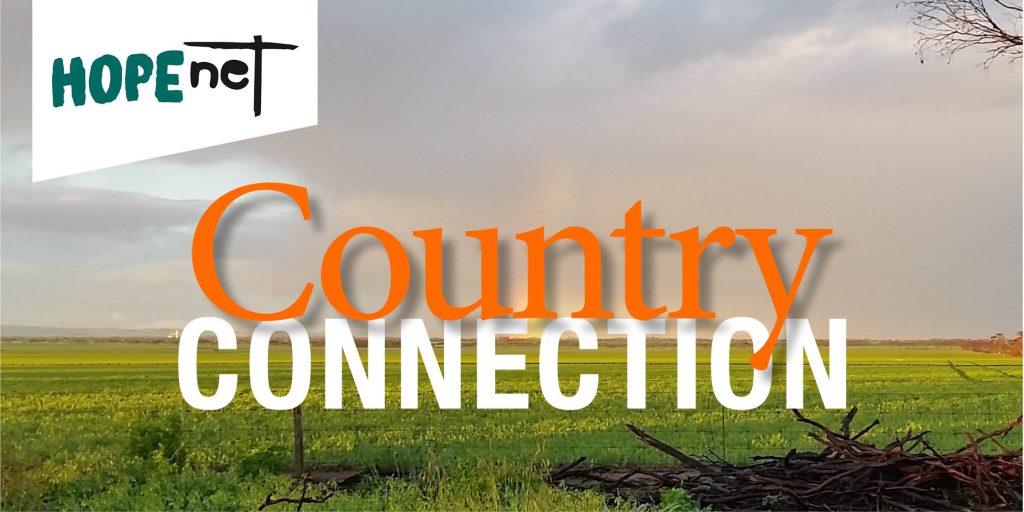Australia Day: A common spirituality – outrageous yet obvious.
The perennial Australia Day debate presents an opportunity to acknowledge and work from a living uniting force that has been and is a blessing to all cultures resident on this vast land. And for new cultures and religions desiring to reside here. The opportunity: A common spirituality. Deeper and richer than mere education or political and legal structures. Amazingly we neglect to bring it out, explore and use it.
The questioning of Australia Day on 26th of January commemorating the landing at Sydney Cove in 1788 is intensifying with Telstra joining the list of large corporations offering employees an alternative day off. Woodside oil and gas producer spokesperson: “With regard to Australia Day, we acknowledge and respect the diversity of views on the issue,” Ten Network likewise, saying “not a day of celebration”. And BHP’s spokesperson, “We recognise our workforce has mixed emotions about January 26th and what it represents to all Australians, especially Aboriginal and Torres Strait Islander peoples. We need to ensure the cultures of all Australians are respected, acknowledged and appreciated every day”. (19/12/22 ,The Australian).
It is important, to know the feelings of Aboriginal and Torres Strait Islanders about this day, referred by some as ‘invasion day’, ‘mourning day’ or ‘survival day’. importantly too, what is ‘The Day’ that deserves fixture in the Australian calendar as worthy of note? Is there a day that represents not only the forcible entry of Europeans into this assumed ‘Terra Nullius’ but a day that First Peoples can celebrate too? Even more significantly is there a day that a majority of all Australians regardless of race, nationality, age or gender could wholeheartedly name and claim as their Day? If such a day exists where is it and why haven’t we already found it, or is it just a dream that we have such an elusive day?
Most countries have ‘A Day’; for most, it is a day of national liberation, an Independence Day or a National Day. After Christian Days like Christmas and Easter, these are the most popular amongst the international community of nations. Australia does not have a day when by bravery of arms the yoke of a colonising aggressor is shed.
But others have looked more widely and seen something we might all note. The Torres Strait Islander (TSI) part of the whole Indigenous population has found something cohesive that they celebrate with joy. In fact, it is something that is shared by a majority of Indigenous people and a large proportion of European descendants as well.
It goes to the soul of belief and values and thus has the ingredients for a commonality of adherence and celebration.
What is this Day? It is the ‘Day of the Coming of the Light’. In 2021 it was the entire focus of the TSI who celebrated the Light of the Gospel with drama, speeches, gatherings and worship that transformed their culture from headhunting and violence to peace and neighbourliness.
Here a blending or a synthesis of ancient culture occurred with another ancient culture rooted in the patriarchs and prophets of the Biblical Covenants culminating in the Coming of the One who is the Light of all humanity. This is the spiritual culture of the TSI people, at least many of them and certainly it has their fully owned spiritual signature.
Moreover, this spirituality or Christianity or rather a ‘Jesus spirituality’ is rapidly growing amongst other indigenous groups. It is sung by great artists like Gurrumul. It is proclaimed in the expanding and rolling Forty Stories. It is noted and affirmed by celebrities like Stan Grant. It is symbolised on our Fifty dollar note with the genius inventor and preacher David Unaipon whose mascot saying was: “Look at me and see what the Bible can do”. An evangelist he was as well, ironically twice arrested for open-air preaching in the city of Adelaide. Reconciling voices have come from great leaders past and present. Aboriginal elder Aunty Marge (Margaret Lilardia Tucker) in her book ‘If Everyone Cared’ declaring “this land is not ours nor is it those who have more recently arrived. It is God’s land and given to us all richly to enjoy”. Many like young singer and author Isaiah Firebrace testify to their inspiration coming from this ancient Biblical source such as in his case, from the born-again church where his family found stability and where he grew up singing in church and “loved it”. As a young person, he speaks of reconciliation involving respect, acknowledgment, and pride; values that flow from Biblical belief and influence.
It is thus a mistake to separate streams of influence in indigenous culture as if there is a single or unalloyed form on its own. The Christian or ‘Jesus spirituality’ of aboriginal people is vastly more widespread than conventional narratives and policy indicate. It is grossly misleading, even offensive to them to ignore it. The TSI people, like cultures worldwide, know Light when it shines and know how to receive it into their hearts.
It is their choice to decide how they understand and structure their spirituality. While it is appropriate to respect and guard indigenous culture it is also important to acknowledge what indigenous people describe as that culture. And for many, it is a spirituality that could engender much more reconciling around dealing not only with Australia Day questions but also the current debate on the Voice. This spirituality is a potential foundation for a powerful reconciling force.
So what might be the best day to name Australia Day? Is there a day, another day that carries spiritual significance of enough depth and national meaning? Well in fact there is. It is a day nominated by Aboriginal and Torres Strait Islanders already as the most significant annual day for them. Particularly TSI first peoples, but its inner meaning is shared with a substantial majority of Aboriginal people generally. It is July 1st, The Coming of the Light.
But what about Europeans? It meets their spiritual foundations exactly. The Jack planted at Sydney Cove in 1788 symbolises a deeper reality than British power. The three crosses represent the welcomed influence on Irish, Scottish and English peoples by Christian missionaries who brought into their culture exactly that which Islander missionaries brought to the TSI first peoples, and which they have embraced and celebrated ever since for 151 years.
And the best of that Christian culture has blessed all in this country. As Aunty Marge declared “this land is given by God to us all richly to enjoy”. The very Preamble to our Constitution implies that all the hopes and intentions for a successfully governed nation will flow from “humbly depending on the blessing of Almighty God”. Strange indeed that this level of human experience, that which goes to the centre of our beings, our beliefs and spiritual revelation is all but left unexplored in these moments and necessities of national importance.
What better basis for the reconciling progress and for the Day, for our united and shared lives together into a just and rich future?
Ian Clarkson


Looking at the problem makes the problem larger and more depressing, but looking at the solution is a far more positive exercise. This sounds like a good solution, so let’s focus on that.
Well said.
Reading this on Australia Day has stronger impact as there are strong feelings being shared on FB As an immigrant I feel so blessed to have the opportunity to grow up in Australia I arrived in November 1966 but would love a date we could all celebrate together
Very well written Ian!
Thanks for sharing your insights on this subject.
#FindaCommonGround
Ian, I wonder if this piece presupposes two groups of people, Indigenous and European. But, for example, we have more people in Australia born in Asia than the UK at present. Maybe we need a small re-write to include them?
Yes, it does, in that for the most part they share a common spirituality Asian immigrants include a significant share of Christians, mainly Catholics as well. My emphasis is on the common and majority spirituality or beliefs which source our institutions and influence our values and social behaviour albeit often without consciousness acknowledgement
Maybe following Singapore, which recognises holy days for four religions, taking up your thinking would mean several days to celebrate….
I think that is another story.